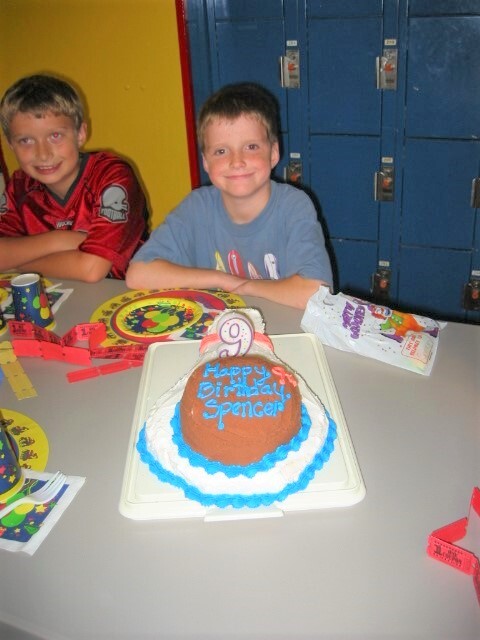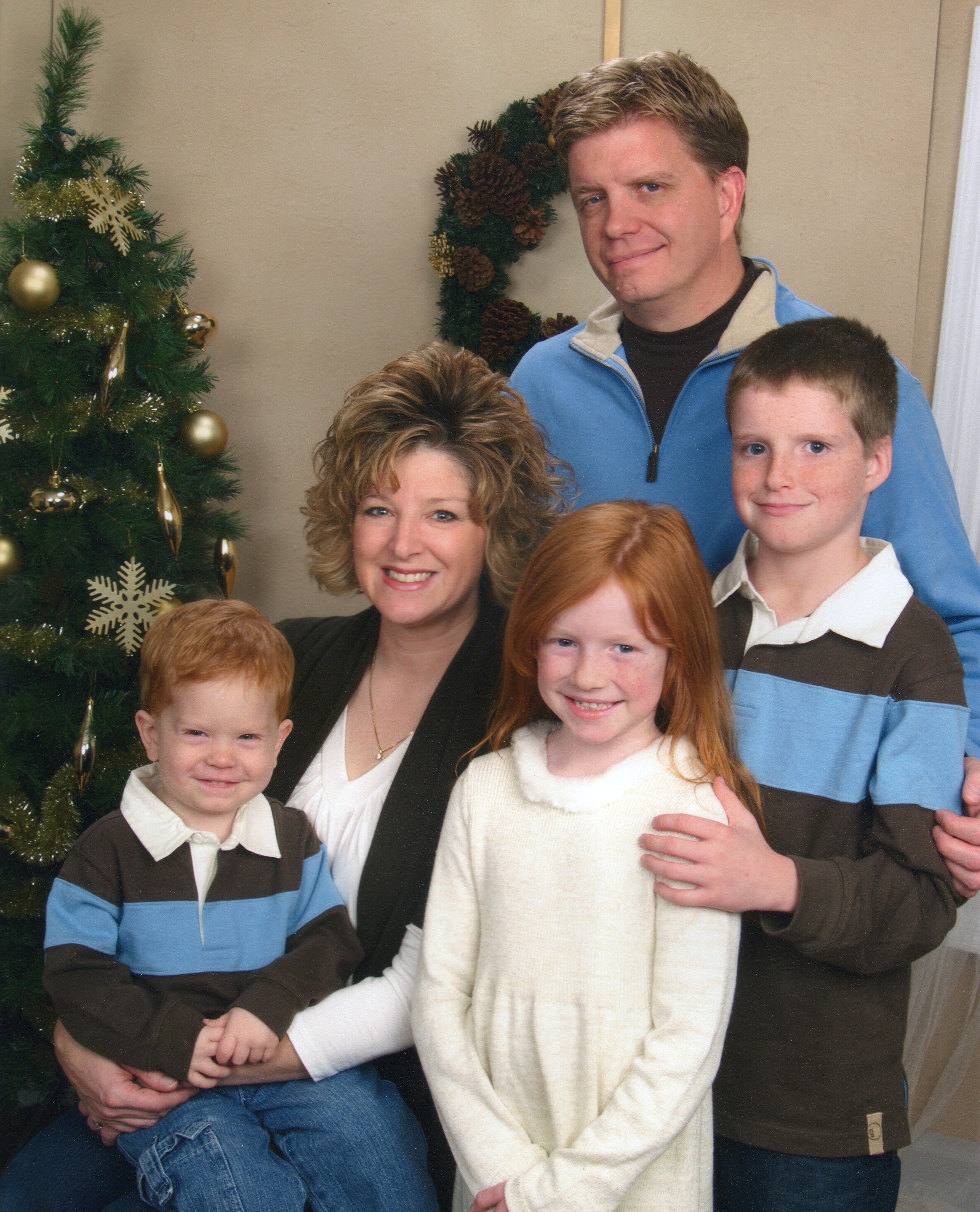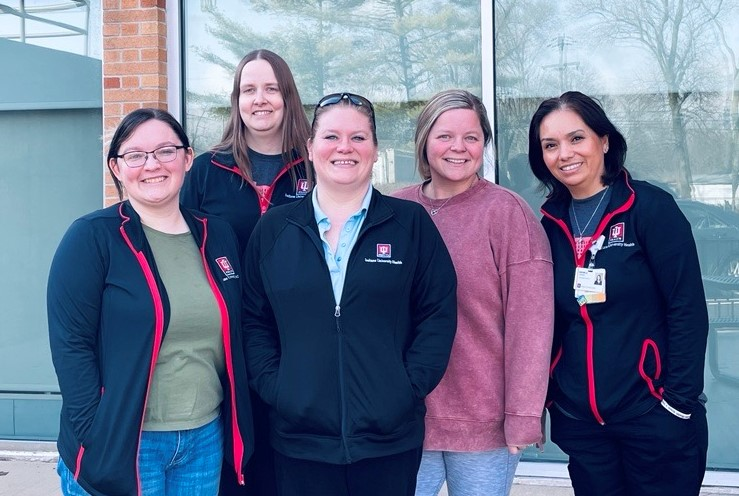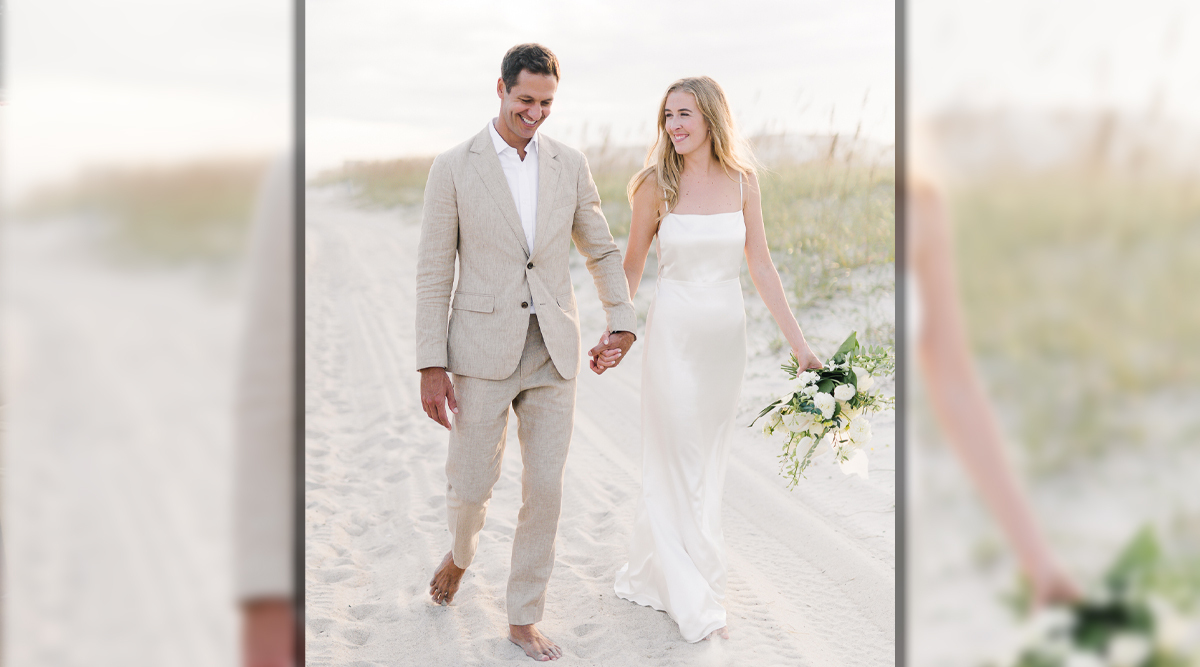As a social worker at the IU Health Joe & Shelly Schwarz Cancer Center in Carmel, Amber Peck offers supportive counseling and helps patients access resources.
By Charlotte Stefanski, cstefanski@iuhealth.org, writer for IU Health’s Indianapolis Suburban Region
As a self-described old soul, Amber Peck always enjoyed spending time with her grandparents when she younger.
Those joyous memories would later inspire her to become a social worker. She first assisted older generations and their families as they navigated hospice or home care, becoming comfortable in listening to their stories and what mattered to them.
“Everybody is different. Their journey is different and their kind of care is a little bit different. I became more adept at working with them and their journey with their illness,” Peck said.
Now, more than 20 years later, she’s helping connect patients with cancer to resources and reach their goals at IU Health North Hospital.
Peck joined IU Health in 2016, first at IU Health University Hospital’s surgery outpatient clinic, and then IU Health North Hospital in 2019. A year later, she began working with patients in the IU Health Joe & Shelly Schwarz Cancer Center in Carmel.
Though Peck is the only social worker positioned there, she is available to all patients at the facility for psychosocial needs. This includes supportive counseling for a cancer diagnosis and she also provides referrals to community resources for financial burdens and transportation needs.
“Sometimes it’s just being there at a moment when they feel kind of overwhelmed. Maybe their cancer is stable and getting better, but it’s the other life stressors,” Peck said. “It just becomes a little too much sometimes to handle, whether it’s family issues or just fears of being a burden, either financially or just caregiving wise.”
Her favorite part of her job is meeting with patients, no matter where they are in life—whether they’re receiving good news or bad news, she enjoys being with them in that moment.
When working with patients experiencing cancer, she sees hope, whether it’s hope for a cure, hope for quality of life and hope for not having pain.
“Hope is different. It ebbs and flows and changes. I think people are afraid of cancer and they’re afraid of seeing people in pain and in difficult situations” Peck said. “I’m not afraid of going there, sitting with them in that moment, and helping them find their way through all this.”
While Peck can be a source of hope for many, social work can still be a stressful job. It’s often under-resourced—no matter the industry. In the future, she hopes it can be more utilized.
March is National Social Work Month
Social workers can be found all throughout the IU Health Indianapolis Suburban Region (ISR), which includes IU Health North, Saxony, Tipton and West hospitals. They’re in the emergency departments, on surgical floors, primary care offices, mental health services, labor and delivery units, cancer centers and more.
“The social workers in the ISR have a wealth of information. I’m in contact with one of them almost daily, to reach out for information, their expertise or their validation,” Peck said. “There’s just a wealth of knowledge from social workers here in the ISR.”
Having social work as a component of care can bring so much to the table, she adds, because a patient is not just their diagnosis or health condition. Social workers are trained to identify a patient’s strengths and what they might need to help them come up with a plan.
For those who come into IU Health hospitals and feel they may want to speak with a social worker, she recommends they be open and honest about their situation.
“Just talking through situations or struggles they’re having sometimes can help them look at it from a different perspective. Social workers are great at identifying resources, offering that support and validating their feelings,” Peck said. “It really helps a patient in the long run to have a social worker involved, or even just knowing they have one if needed.”





